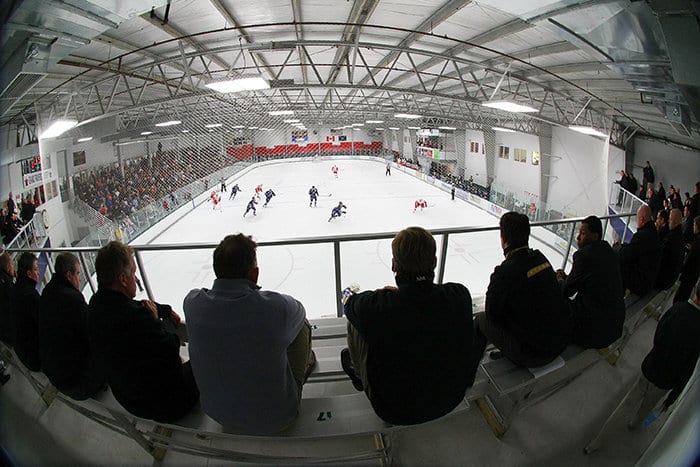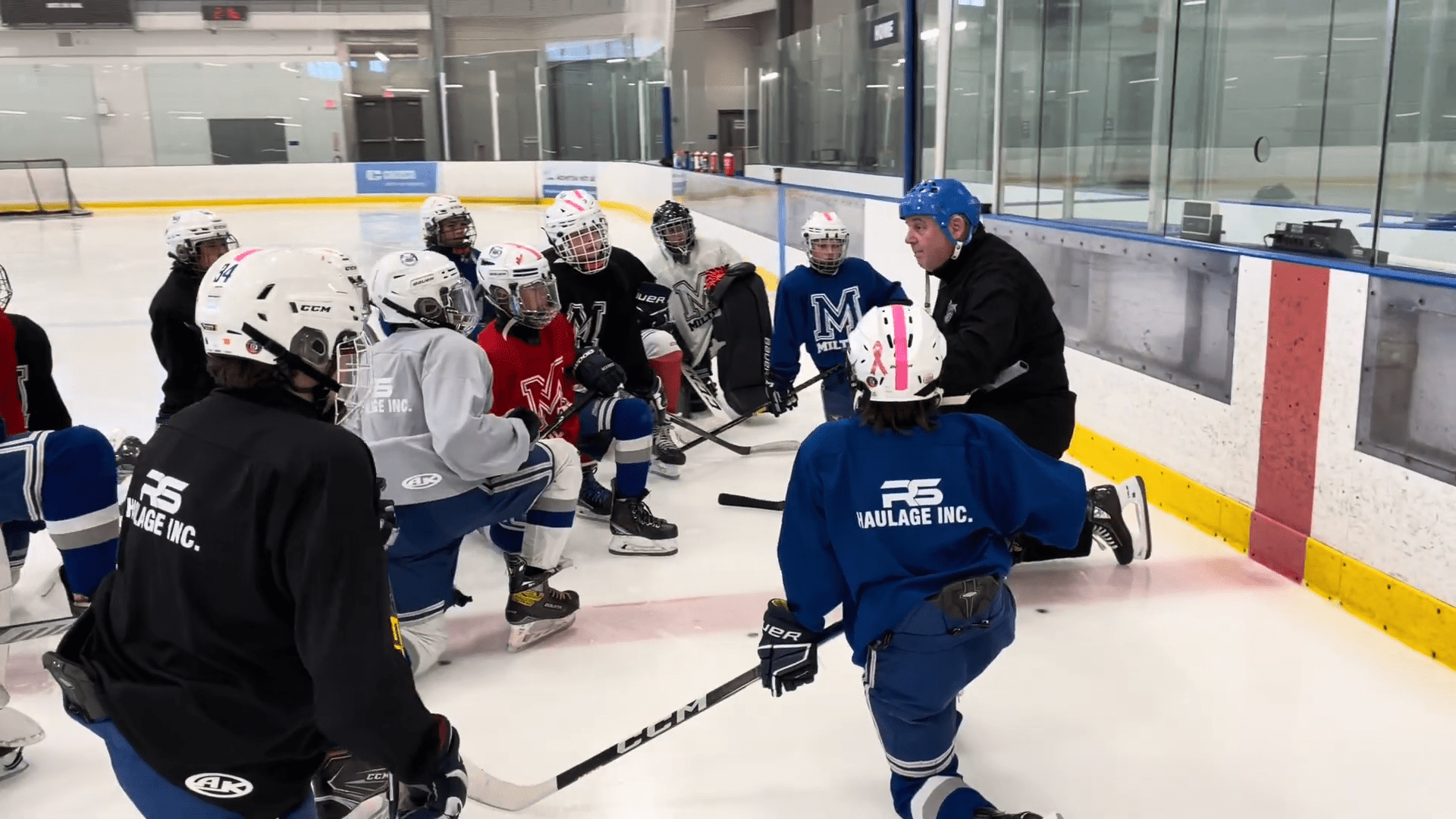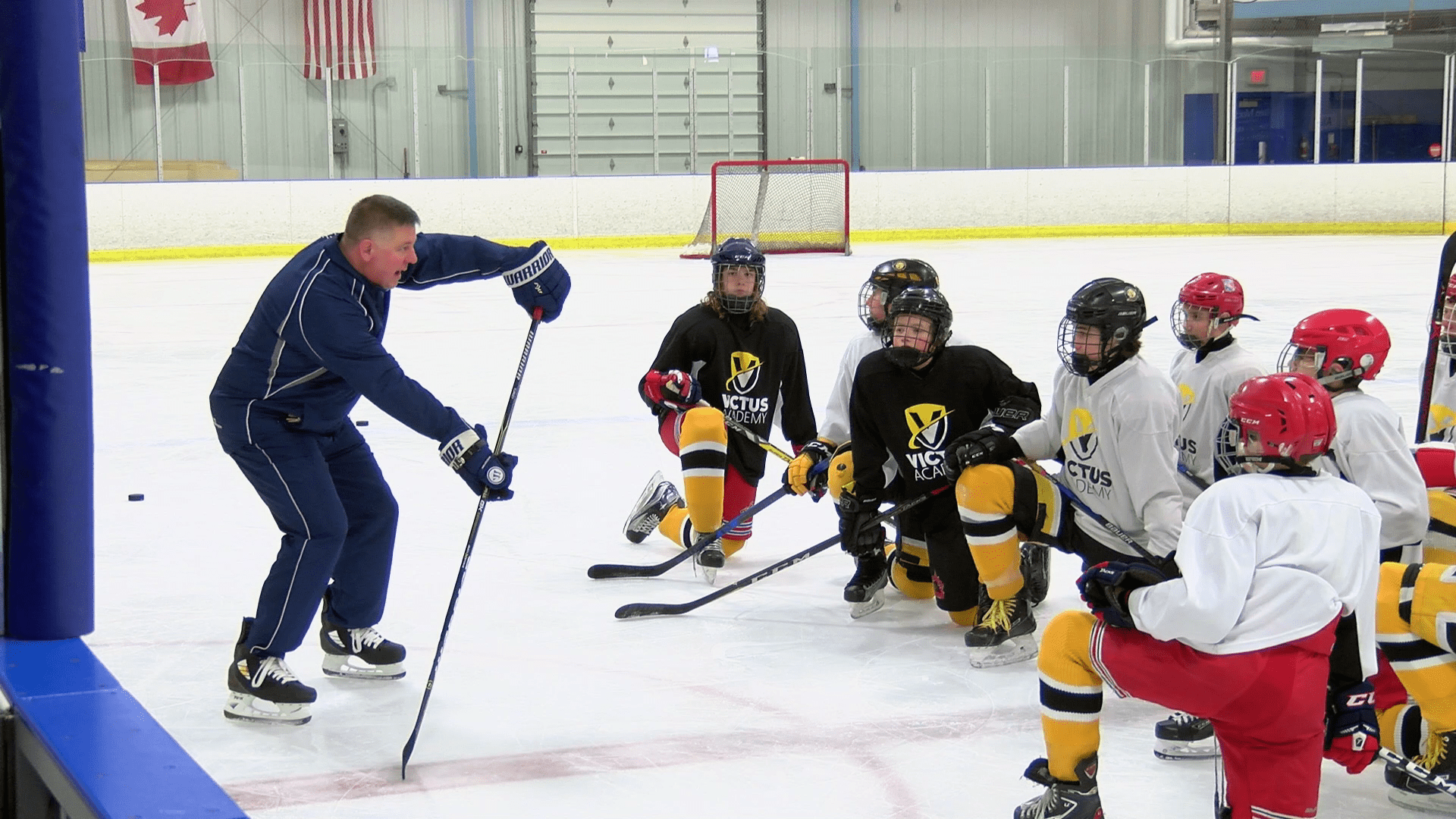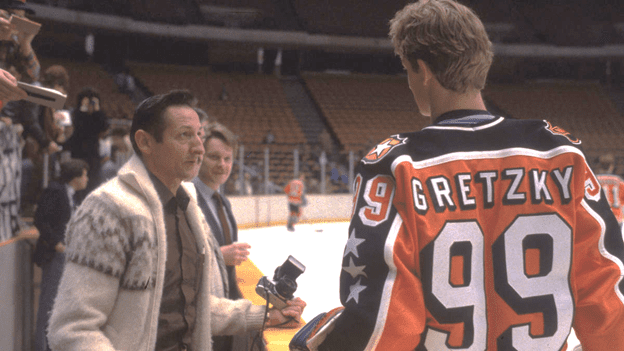It’s every player’s dream: to step off the ice after a dominant game and be approached by a hockey scout. The scout tells the player that they have incredible potential and offers them the opportunity to play at the next level of hockey. Any serious hockey player craves being scouted; it’s why they put in the countless hours of practice and make so many sacrifices for their sport.
As a player, it can be tough to spot scouts, especially if you’re used to playing in front of a larger audience. Scouts won’t always be at your games, anyway, so how do you know when to turn up the heat and give it your all in the chance that you’ll get recruited?
Trick question: it doesn’t matter. You should always keep the heat turned all the way up! Not only because it’s a good mentality to have, but all the other people watching your game can play a role in you being scouted, too.
Everyone Plays a Role
Scouts aren’t the only people who affect whether you get scouted. Parents and coaches are the two other parties that affect the scouting process. Depending on the situation, they can play a massive role in determining whether a player is scouted to a team. The main difference between scouts and coaches/parents? Coaches and parents are at every single game. Scouts aren’t. That’s why it’s a good idea to treat everyone as a hockey scout.
Scouts will often refer to a team’s coach for feedback about players. And, depending on influence and connections, parents who recognize the ability of a player (not necessarily their own child) can also help with scouting.
Coaches provide inside information for hockey scouts. Scouts watch you demonstrate your physical skills during games, but they don’t often get to see other, less visible traits. Your coach, on the other hand, has spent time working with you one-on-one and studying you as a player.
Any good coach will have at least some idea of each player’s attitude, mindset, work ethic, sportsmanship, etc. Those traits are just as important to hockey scouts as the ability to score goals, pressure the enemy team, or block shots. A scout doesn’t want to recommend a player for a team that’ll be a star forward but will bring the morale of the team crashing down. That’s why hockey scouts will turn to coaches for feedback about their players.
So, always do your best to impress your coach. Be courteous and sportsmanlike, but also passionate and fiercely competitive. Always give your all during practices and games. If you impress your coach enough, they’ll be more than happy to put in a good word for you.
Parents can even play a role in the scouting process, namely through connections. The hockey community is small and close-knit. Many of the parents, coaches, and staff know each other in some way or another. The kicker? Some of the parents know scouts (or other people who have influence with scouts) as well.
This is yet another reason to always try your best and give 100% during each hockey game. No matter how bleak the game looks or how tired you are, keep pushing yourself to your limits. You never know when a parent in the audience who knows a scout will mention your name because they recognize your talent and work ethic.
The “Always Watching” Mindset
Treating everyone who’s watching you play hockey as a scout is a beneficial mentality apart from simply affecting your chances of being scouted. I like to call it the “always watching” mindset: assume you’re always being watched by someone influential, regardless of whether anyone important is truly watching you. Even if you’re on the ice in an otherwise empty arena. Why? It creates accountability to others.
Adopting the “always watching” mindset makes you accountable for your performance on the ice not only to yourself, but also to that so-called “important person” watching as well. That extra accountability will motivate you to push yourself harder and always perform to the best of your abilities. Some scouts may even show up to team practices to observe your habits and work ethic.
Accountability to others is a powerful motivator. Imagine yourself as the only person at the gym; there’s nobody watching you. If you get tired, you’ll simply stop doing your reps and take a break. In a packed gym, however, you feel as though there are sets of eyes on you, which pushes you to do more than you thought you were physically capable of.
In general, people perform better when watched. So, always assume you’re being watched!
Market Yourself
There’s a third party other than parents and coaches that can help play a role in scouting: you!
If you’re serious about hockey, no matter your age or skill-level, you should take the initiative and market yourself as a player. Showcase your talent and make your presence as a dominant hockey player known.
One of the best ways to market yourself as a player is to use social media to your advantage:
- Create highlight reels for YouTube
- Fill your Instagram, Twitter, and Facebook with posts and short videos about your hockey career
- Participate in hockey forums by asking and answering questions and discussing the game
The other effective way to market yourself as a player is to contact coaches and hockey scouts from the level you’re interested in (and even levels beyond). Research the names of scouts and coaches from the division and introduce yourself to them, letting them know your interest in being a prospect for advancing to the league. You can also send them a link to your YouTube and social media so they can see your hockey prowess for themselves!
Despite the effect that you, coaches, and parents can have on the scouting process, the hockey scouts still make the final decision. Sometimes, even with your best efforts, you may miss the opportunity of being scouted to play at a higher level. Just remember, success in hockey (as with everything) comes down to hard work and dedication.
Being scouted isn’t a race. Stay focused on the goal and if you miss an opportunity now, with perseverance you’ll have a much better shot at achieving it in the following season. Plus, if you adopt the “always watching” mindset, you can be sure that you’re always trying your best at every practice and game. Whether you get scouted or not, you’ll see improvement in your own abilities as a player, which is a great sign for the future.






